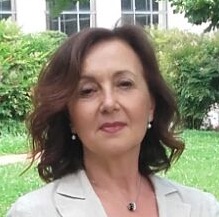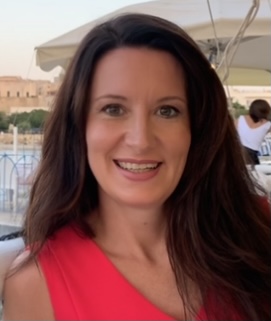Studying at the University of Verona
Here you can find information on the organisational aspects of the Programme, lecture timetables, learning activities and useful contact details for your time at the University, from enrolment to graduation.
Academic calendar
The academic calendar shows the deadlines and scheduled events that are relevant to students, teaching and technical-administrative staff of the University. Public holidays and University closures are also indicated. The academic year normally begins on 1 October each year and ends on 30 September of the following year.
Course calendar
The Academic Calendar sets out the degree programme lecture and exam timetables, as well as the relevant university closure dates..
| Period | From | To |
|---|---|---|
| Sem. 1A | Sep 21, 2020 | Oct 31, 2020 |
| Sem. 1B | Nov 9, 2020 | Jan 9, 2021 |
| Sem. 2A | Feb 15, 2021 | Apr 1, 2021 |
| Sem. 2B | Apr 14, 2021 | May 29, 2021 |
| Session | From | To |
|---|---|---|
| Sessione d'esame invernale | Jan 14, 2021 | Feb 13, 2021 |
| Sessione d'esame estiva | Jun 7, 2021 | Jul 24, 2021 |
| Sessione d'esame autunnale | Aug 23, 2021 | Sep 18, 2021 |
| Session | From | To |
|---|---|---|
| Sessione di laurea estiva | Jul 5, 2021 | Jul 10, 2021 |
| Sessione di laurea autunnale | Nov 8, 2021 | Nov 13, 2021 |
| Sessione di laurea invernale | Mar 28, 2022 | Apr 1, 2022 |
| Period | From | To |
|---|---|---|
| Festa di Ognissanti | Nov 1, 2020 | Nov 1, 2020 |
| Festa dell'Immacolata | Dec 8, 2020 | Dec 8, 2020 |
| Vacanze di Natale | Dec 24, 2020 | Jan 6, 2021 |
| Vacanze di Pasqua | Apr 2, 2021 | Apr 6, 2021 |
| Festa della liberazione | Apr 25, 2021 | Apr 25, 2021 |
| Festa del lavoro | May 1, 2021 | May 1, 2021 |
| Festa del Santo Patrono | May 21, 2021 | May 21, 2021 |
| Festa della Repubblica | Jun 2, 2021 | Jun 2, 2021 |
| Vacanze estive | Aug 9, 2021 | Aug 15, 2021 |
Exam calendar
Exam dates and rounds are managed by the relevant Humanistic Studies Teaching and Student Services Unit.
To view all the exam sessions available, please use the Exam dashboard on ESSE3.
If you forgot your login details or have problems logging in, please contact the relevant IT HelpDesk, or check the login details recovery web page.
Should you have any doubts or questions, please check the Enrollment FAQs
Academic staff
 cristina.bertazzoni@univr.it
cristina.bertazzoni@univr.it
 andrea.ghidini@univr.it
andrea.ghidini@univr.it
 stefania.pontrandolfo@univr.it
stefania.pontrandolfo@univr.it
 marco.ubbiali@univr.it
marco.ubbiali@univr.it
Study Plan
The Study Plan includes all modules, teaching and learning activities that each student will need to undertake during their time at the University.
Please select your Study Plan based on your enrollment year.
1° Year
| Modules | Credits | TAF | SSD |
|---|
2° Year activated in the A.Y. 2021/2022
| Modules | Credits | TAF | SSD |
|---|
| Modules | Credits | TAF | SSD |
|---|
| Modules | Credits | TAF | SSD |
|---|
| Modules | Credits | TAF | SSD |
|---|
Legend | Type of training activity (TTA)
TAF (Type of Educational Activity) All courses and activities are classified into different types of educational activities, indicated by a letter.
Philosophy and Socratic Dialogue (2021/2022)
Teaching code
4S008178
Teacher
Coordinator
Credits
6
Language
Italian
Scientific Disciplinary Sector (SSD)
M-FIL/07 - HISTORY OF ANCIENT PHILOSOPHY
Period
Sem. 2A dal Feb 14, 2022 al Mar 26, 2022.
Learning outcomes
Knowledge and understanding 1. To know and understand the structural relation between the character of Socrates and the practice of maieutic dialogue. 2. To know and understand the pedagogical relevance of the classical "paideia", in particular the how it is described and practiced by Socrates in the Platonic dialogues and in the Socratic literature. 3. Knowing and understanding several fundamental elements of the Socratic dialogue: the search for meaning, irony, refutation, paradox, the exhortation to self-care and to the value of life within the "polis". Applying knowledge and understanding 1. Understanding the theoretical meaning of the Socratic dialogue in the contemporary ways of communication, focusing on issues of both continuity and discontinuity ad to the problems involved. 2. Rethinking and reformulating the educational dialogue, as a commonly understood today, in the light of the Socratic practice of dialogue, as presented in the Platonic dialogues and in the Socratic literature. 3. Rethinking the professional profile and lifestyle of the educator and pedagogist by looking at the way Socrates thinks and acts in the Platonic dialogues and the Socratic literature.
Program
Title and content of the course: "Education among the Ancient Greeks and the Socratic dialogue".
The course tackles the educational strategies implied in the Socratic dialogue (questioning, examination, refutation, care of the self, irony, maieutics, logic, and dialectics) in the first-generation Socratics (especially in Plato, but also in Aristippus, Aeschines, Phaedo, and Xenophon). We will investigate the lines of continuity and discontinuity between the dialogue practiced by Socrates and the Greek notion of Paideia, with particular reference not only to the life of the Athenian polis, but also to the reception and application of the Socratic dialogue in contemporary educational practices such as the Philosophy for Children, the Cooperative Learning and the Problem-Based Learning.
The course will provide a shared reading of dialogical units drawn from Socratic literature: students will be involved in discussing the positions held by the characters in the text and, where possible, in applying the educational tenets of the Socratic dialogue to concrete situations.
TEXTS TO BE READ FOR THE ORAL EXAM:
A) L. Napolitano, Il dialogo socratico, Milano, Mimesis 2018 (the student will choose one modern author in the first part of the book; the second part of the book should be read entirely).
B) Course reserve:
1. Dialogical units of the first-generation Socratics Aristippus, Aeschines, Phaedo, and Xenophon.
2. W. Jaeger, chapter on 'Socrates' included in Id., Paideia, vol. III (Bompiani, Milano 2003).
3. L. Mortari, Conoscere se stessi per aver cura di sé, in: "Studi sulla formazione," 2 (2008), pp. 45-58.
The course reserve is available at the copy shop ateneo æmme edizioni, Lungadige Porta Vittoria, 37.
NON-ATTENDING STUDENTS:
Non-attending students will bring the same texts as attending students, except for the volume by L. Napolitano "Il dialogo socratico," which will be read in its entirety.
Examination Methods
Teaching method: The course will be held in accordance with the provisions on COVID-19 issued by the University of Verona. The course includes lessons and seminars in which texts will be read and discussed. Attendance is therefore useful, but not mandatory. Given the unpredictability of the health emergency, lessons will be recorded via panopto/e-learning/zoom and uploaded on the Moodle platform. In case of specific provisions issued by the University of Verona, these lessons may eventually replace the teaching in presence.
Office hour: Throughout the academic year, the instructor is available either in his room, or via e-mail, or via Zoom/Skype.
Evaluation method: The student will be interviewed orally or via Zoom (depending on the developments of the health emergency). Students can choose a topic from which they can start their exam (such choice must be communicated to the teacher by e-mail at least one week before the date of the exam).
Type D and Type F activities
Modules not yet included
Career prospects
Module/Programme news
News for students
There you will find information, resources and services useful during your time at the University (Student’s exam record, your study plan on ESSE3, Distance Learning courses, university email account, office forms, administrative procedures, etc.). You can log into MyUnivr with your GIA login details: only in this way will you be able to receive notification of all the notices from your teachers and your secretariat via email and soon also via the Univr app.
Student mentoring
Graduation
Documents
| Title | Info File |
|---|---|
|
|
pdf, it, 99 KB, 13/10/23 |
|
|
pdf, it, 101 KB, 10/04/24 |
List of theses and work experience proposals
| theses proposals | Research area |
|---|---|
| Psicoanalisi | Psychology - Psychology, Psychoanalysis |
Gestione carriere
Linguistic training CLA
Practical information for students
Documents
| Title | Info File |
|---|---|
|
|
pdf, it, 325 KB, 02/05/23 |
|
|
pdf, it, 212 KB, 02/05/23 |
|
|
pdf, it, 131 KB, 02/05/23 |
Stage e Tirocini
Per le altre attività formative (crediti F) sono previsti 9 cfu (pari a 225 ore) da acquisire solamente attraverso l’attività di tirocinio obbligatoria, a sua volta suddivisa in:
- tirocinio indiretto (1 cfu: 25 ore di frequenza obbligatoria in università per il 75%) in preparazione dell’attività formativa sul campo;
- tirocinio diretto (8 cfu), da svolgersi presso enti convenzionati.
L’ordinamento didattico della LM in Scienze pedagogiche prevede che il tirocinio indiretto a frequenza obbligatoria si svolga in università per il 75% nel secondo anno (1 CFU: 25 ore).
Il tirocinio indiretto consiste in un accompagnamento iniziale delle/degli studenti da parte dei tutor attraverso un percorso di formazione della durata di 25 ore.
La finalità di questo percorso è quella di preparare le/gli studenti alla particolare forma di apprendimento costituita dal tirocinio, dotandoli di conoscenze e strumenti adeguati a osservare, comprendere e rielaborare criticamente l’esperienza di tirocinio nei servizi educativi e ad affrontare il tirocinio negli enti con metodo e consapevolezza.
Il percorso, da attuare in gruppi da 20-25 persone sotto la supervisione di un tutor proveniente dal mondo professionale di educatori e pedagogisti, risponde alle esigenze costantemente espresse sia dalle/dagli studenti stessi sia dalle parti sociali che dai referenti degli enti convenzionati.
Nuove Linee Guida per il tirocinio di Scienze pedagogiche.
- Tutte le informazioni in merito agli stage per futuri studenti sono disponibili alla pagina Stage e tirocini.
- Tutte le informazioni in merito agli stage per studenti iscritti sono pubblicate in MyUnivr - come fare per - stage e tirocini.
- Tutte le informazioni in merito agli stage per le aziende sono disponili alla pagina Stage e tirocini per azienze.

 +39 045 802 8459
+39 045 802 8459






















